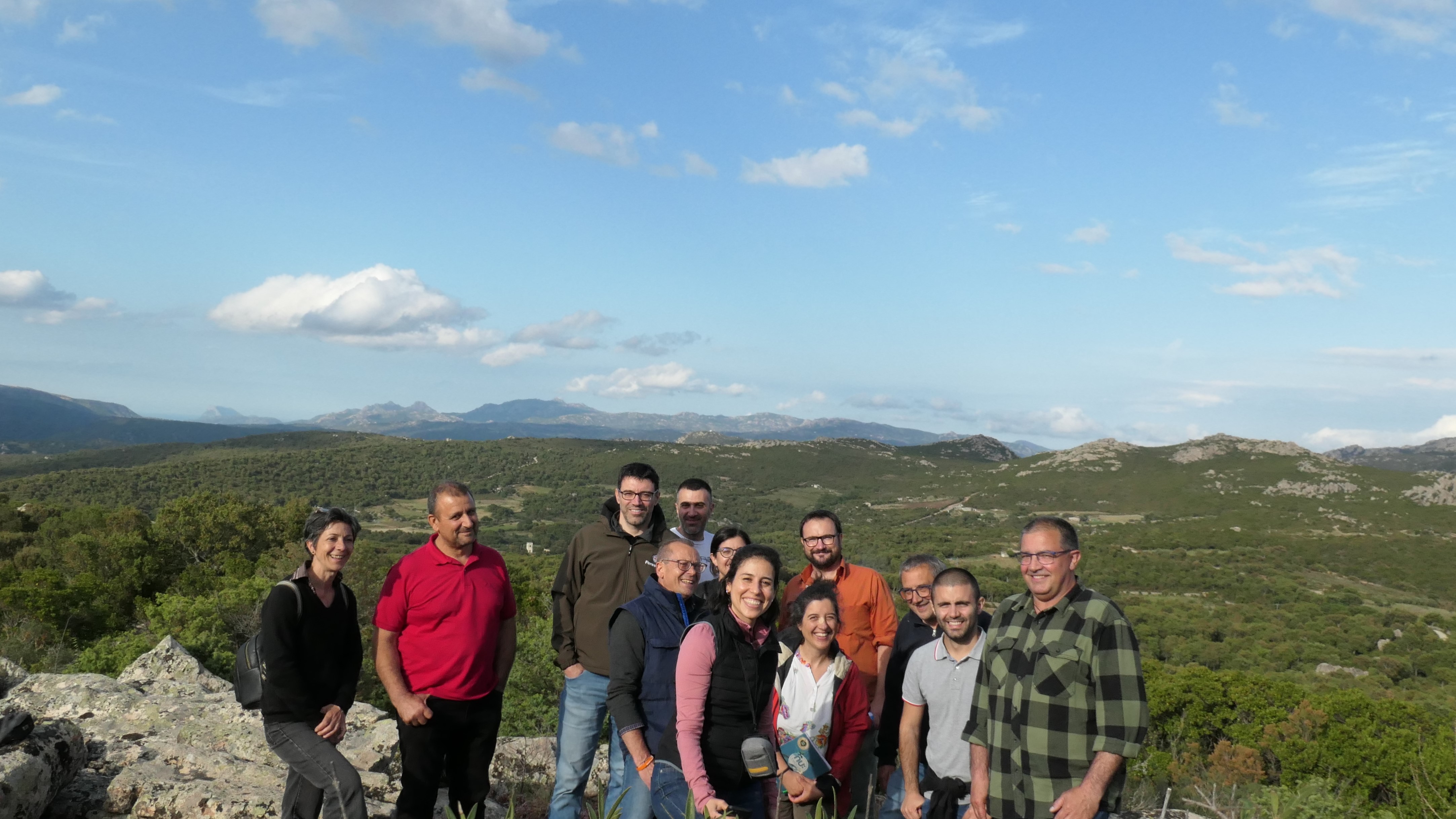First insights from the ForestPaths project on human-forest interactions in Italy: a workshop on holistic forestry policy pathways for climate change mitigation
The Italian demo case, representative of Mediterranean and continental climates, examined the context of Sardinia, an island with 1.2 million hectares of forest (primarily Quercus), experiencing demographic changes as the population migrates from rural inland settlements towards coastal cities. A participatory demo case workshop was recently held in Alà dei Sardi, Italy, co-organised by ForestPaths partners CMCC, TEES and EFI, in collaboration with the Municipality of Alà dei Sardi. The event saw a diverse group of 23 participants, including university professors, PhD and MSc students, small forest owners, representatives from AGRIS Research Institute and from the Regional Forestry Agency (Fo.Re.STAS) and various forest and cork producers.
The workshop aimed to collaboratively develop forestry policies to mitigate the impacts of climate change on Sardinia's forests. With that in mind, participants began by highlighting the effects of climate change on Sardinian forests, noting issues like pests, diseases affecting cork oak quality, changes in tree growth, increased fire risks, increase of biodiversity loss and altered rainfall patterns. For this reason, they emphasised the need for climate-smart management practices, such as increasing fire breaks, respecting vegetative cycles and improving the resilience of Quercus suber trees. Discussions also identified barriers to adaptation, including high costs, lack of economic incentives, outdated legislation and a shortage of skilled labour.
To address the social and economic barriers, participants used Mentimeter software and suggested enablers like educational activities, knowledge sharing, forestry cooperatives and improved dialogue between institutions and citizens. Additionally, to lessen these barriers, they called for improved legislation, increased research funding, economic incentives for forest management and more training for forest workers. Participants also stressed the need for forest management plans covering contiguous areas, as managing fragmented small properties is economically unviable.
The workshop concluded with a visit to the certified FSC for sustainable forest management (an area of 450 ha) managed by the municipality of Alà dei Sardi. The municipality’s approach emphasises biodiversity, mixed stands and contributions to the local bioeconomy, which was particularly well-received. Furthermore, the inhabitants of Alà dei Sardi have a strong historical bond with their forest, making it an ideal place for knowledge exchange, interventions, learning, dialogue and building new collaborative strategies from the ground up. Additionally, a public-private cooperative, Landhe, is also being established. While facing specific vulnerabilities, such as a lack of specialised labour (“scorzini”) and the effects of climate and demographic changes, the socio-ecological system has been evaluated as resilient.
 Image: Workshop participants at the certified community forest managed by the municipality of Alà dei Sardi.
Image: Workshop participants at the certified community forest managed by the municipality of Alà dei Sardi.
The workshop was a testament to the collaborative spirit of the ForestPaths project, fostering a participatory environment where stakeholders could openly share their experiences and challenges. It addressed immediate issues related to forest management and climate change and helped build a supportive network of practitioners committed to sustainable forestry practices. Additionally, it provided an opportunity to give voice to a rural community, valuing their practices and building relationships to implement future projects. This highlights the potential of the ForestPaths project to address current climate change and biodiversity-related challenges and create a sustainable future for the community, aiming to make it a local and international living lab.